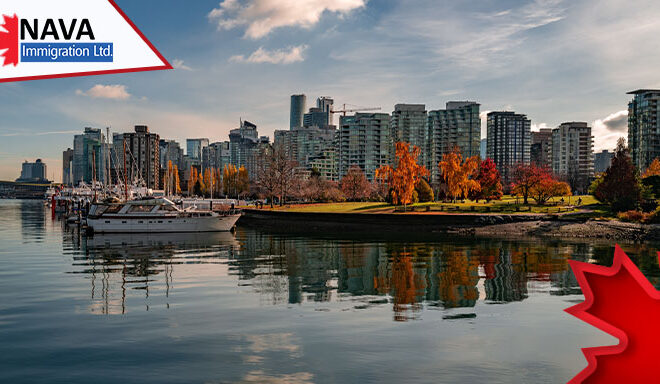Canada Eases Health Insurance Rules For Super Visa Applicants
Canada eases health insurance rules for Super Visa applicants, thus making it easier for parents and grandparents to visit their families.
Effective 28 January 2025, parents and grandparents applying for a Canadian Super Visa might purchase health insurance plans from non-Canadian insurers to fulfill the proof of health insurance requirement.
Prior to this change, one had to purchase health insurance for Super Visa eligibility through a Canadian provider. Super Visa holders must have their own private health insurance in force upon every entry to Canada.
Which Non-Canadian Health Insurance Providers Are Now Eligible For The Super Visa?
For a non-Canadian health insurance provider to provide health insurance coverage to satisfy the Super Visa requirements, that provider should:
- Be authorized by the Office of the Superintendent of Financial Institutions, under the Insurance Companies Act, to provide accident and sickness insurance.
- Appear on the OSFI list of federally regulated financial institutions
- Be issuing or making the policy during the course of its insurance business in Canada
Non-Canadian insurance companies must include a statement in all policies confirming the document was issued or made during the course of their insurance business in Canada. The proof of insurance document must also identify the company that issued the policy.
Note that insurance brokers and insurance claims administrators will not appear on the OSFI list as they are not insurance companies.
All insurance plans, be they Canadian or non-Canadian, should also:
- Be valid for at least one year from the date of entry
- Cover healthcare, hospitalization, and repatriation
- Offer a minimum healthcare coverage of $100,000
Newcomers entering Canada should show proof of payment of an insurance plan to a border services officer.
How Can I Tell If My Non-Canadian Health Insurance Provider Is Authorized To Provide Coverage For Super Visa Eligibility?
Canada eases health insurance rules for Super Visa applicants. Here’s how you can tell if your non-Canadian health provider is authorized or not.
Step One: Make Sure the OSFI Recognizes Your Insurer
Newcomers looking to fulfill their health insurance requirement through a non-Canadian health insurance provider can visit the OSFI’s list of financial institutions. At the time of writing, the list consists of 79 banks and 41 trust companies.
Step Two: Find Out If Your Health Insurance Provider Is Authorized Under The Insurance Companies Act To Offer Coverage
In order to find out if your health insurance provider is authorized under Canada’s Insurance Companies Act to provide health insurance coverage, you can email the OSFI.
In your email, include as much information as possible about the health insurance provider that you are enquiring about, as well as what requirements you are trying to meet in enquiring about the company’s status.
Remember that this provider must first be present on the OSFI’s list of financial institutions.
Step Three: Ensure That Your Health Insurance Provider Issues Or Makes The Policy As Part Of Its Insurance Business In Canada
Newcomers using a non-Canadian healthcare provider when applying for a Super Visa should make clear to their provider upfront that this is a central requirement of the policy that they are purchasing.
Super Visa General Eligibility And Benefits
As Canada eases health insurance rules for Super Visa applicants, one must know about the general eligibility as well as benefits of Super Visa.
The Super Visa provides long-term temporary resident status for the parents & grandparents of permanent residents & Canadians. It allows Super Visa holders to visit their family in Canada for extended periods.
Super Visa holders can reside in Canada for five years, with the option to extend their stay by two years.
The Super Visa provides an alternative to the Parents and Grandparents Program. Well, it gives parents and grandparents legal authority to live with their family in Canada for extended periods.
Unlike the Super Visa, the PGP is a permanent residence pathway. It allows parents and grandparents to gain Canadian PR if successful, which could allow them to stay in Canada indefinitely. Excess demand for the PGP has resulted in a lottery system, making it a lengthy & uncertain process for PGP applicants.
In contrast to the PGP, the Super Visa offers Canadian citizens and permanent residents a quicker and more certain route to reunite with parents and grandparents in Canada.
In order to be eligible for the Super Visa, you must have a host who:
- Is your grandchild or child
- Is a permanent resident, Canadian citizen, or registered Indian
- Is at least 18 years of age
- Meets or exceeds the minimum necessary income requirements based on the size of their family
- Promises to support you financially for the duration of your visit
Moreover, you must be
- Outside Canada, when you submit your application for a Super Visa
- Have your visa printed by a visa office outside of Canada
- Be admissible to Canada
- Take an immigration medical exam
- Have health insurance for the time of your stay in Canada
If you intend to visit your family for six months or less, you can seek entry to Canada as a visitor without applying for a Super Visa.
If you seek information on how to begin your Canada immigration application process, you can talk to our NavaImmigration experts at 1800-918-8490. You can also drop us an email at [email protected].





